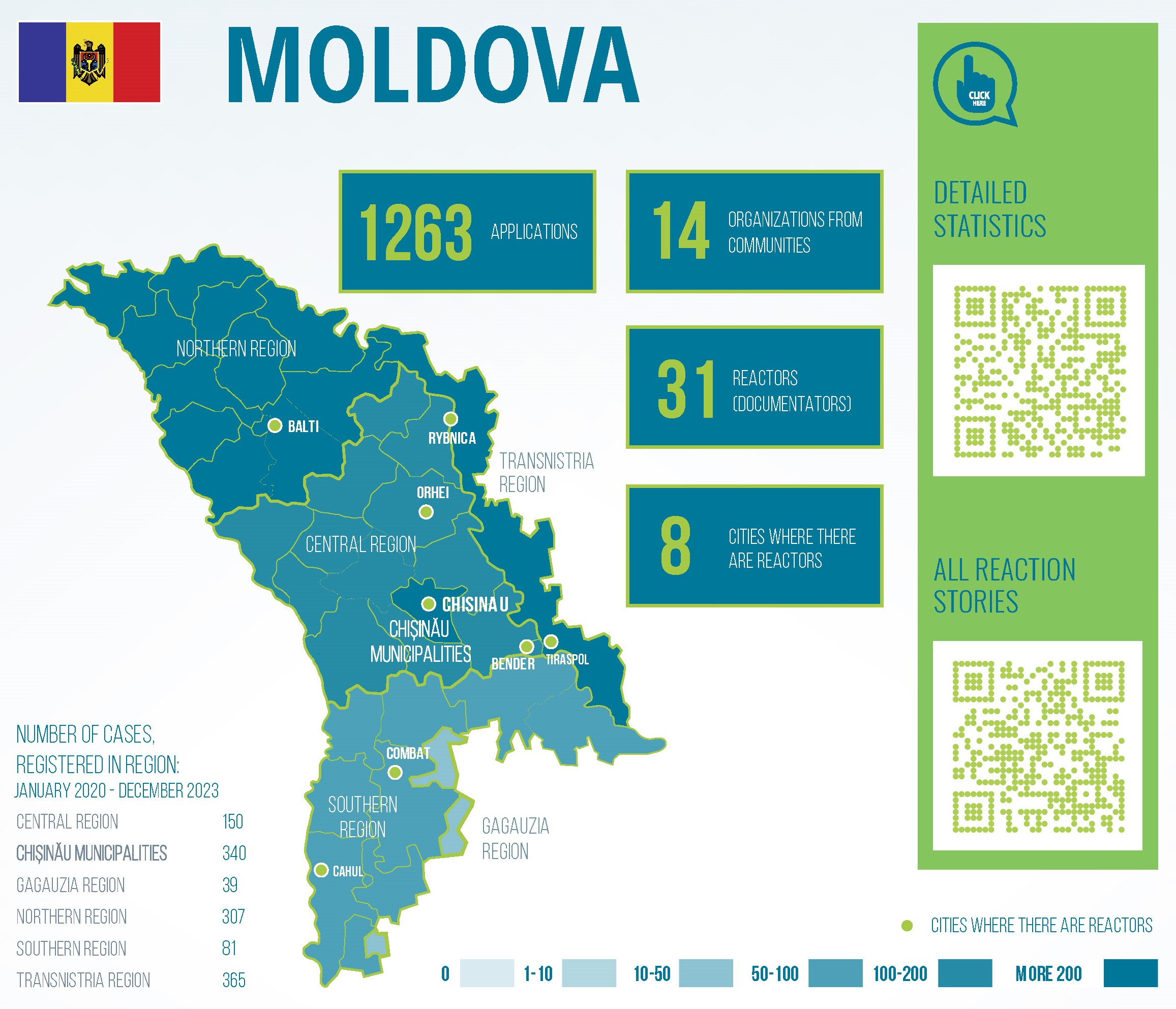Moldova

Background
Moldova’s legislation on key populations remains repressive and discriminatory. Criminal legislation explicitly prohibits HIV transmission and exposure to HIV infection. Sex work and drug use are under strict administrative prohibitions. Possession of drugs without the purpose of sale can be classified as an offense or crime, depending on the size of the dose of the prohibited substance. Doses for prosecution are so small that basically all cases are criminal. LGBT people experience discriminatory attitudes, albeit to a lesser extent than in most other countries in Eastern Europe. Same-sex relationships are not prohibited, but same-sex marriage is not recognized. Moldova is moving towards integration with the European community. The current antidiscrimination legislation contains explicit prohibitions
on discrimination based on sexual orientation and HIV status.
Implementators
The main implementing partner is the public organization Positive Initiative, which works in partnership with 14 other non-governmental organizations that provide services on a wide range of issues for representatives of key populations, including legal support services and services for women.
The project was implemented from December 2019 to December 2021 as part of a regional project #SoS_project “Sustainability of Services for Key Populations in Eastern Europe and Central Asia Region”. Since 2022, the project has been supported within the framework of the Global Fund national program under the leadership of the public organization “Unit for Coordination, Implementation and Monitoring of Health Projects”.
Signed a cooperation agreement with the National Legal Aid Council guaranteed by the state to involve state lawyers in strategic case litigation.
Positive Initiative coordinates the work of REActors, conducts legal training, advises REActors on case management, and represents victims in strategic cases in court and advocates nationally.
Alliance for Public Health provides technical support for database maintenance, analysis of collected information and formation of strategic goals for advocacy.
REActors
The cases are documented by 31 specially trained REActors, one or two for each organization. It was decided to launch REAct on the basis of 8 cities, covering all regions of the country.

